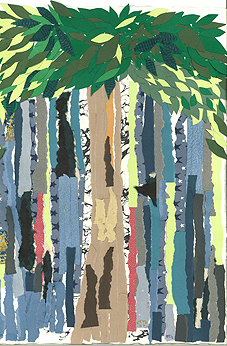The Global South and Cultural Struggles: On the Afro-Asian People's Solidarity Organization
Duncan Mceachern Yoon
For the AAPSO, culture is the realm within which the disaggregation of a colonial modernity and its accompanying consciousness must take place. Like Fanon, the AAPSO’s emphasis on cultural struggle means that rather than reject Western categories, they sought to “deoccidentalize“ their institutions as a way to imagine modernity through South-to-South solidarities. This emphasis on culture’s relationship to politics highlights the tendency for many writers involved in decolonization movements to use critical realism as an aesthetic. The spectrum of realism within the AAPSO can thereby be understood as negotiating many forms—from a hard-line critical realism, to what Mohanty defines as analytical realism. Mohanty’s distinction between descriptive and analytical realism, while used in a reading of Fakir Mohan Senapati’s Six Acres and a Third first serialized in Oriya in 1897-99, is also useful in understanding the transnationalism of the AAPSO and its cultural policies. Mohanty writes: “[...] it is Senapati’s narrative mode that enables him to create a deeper form of realism than would be possible through mere mimesis, through faithful description of the changing surfaces of social phenomena.“ The aesthetics endorsed by the AAPSO were largely committed to this epistemic understanding of literature’s relationship to a particular historical context and its ordering of knowledge. Part of the disaggregation of colonial modernity, then, meant delving into social phenomena specific to cultures in Africa and Asia. The creation of the AAPSO Writers Bureau in 1958 provided a forum for debates over what kind of literature and aesthetics was appropriate in this context. It produced a cultural transnationalism that, while fraught by Cold War realpolitik, also sought to challenge the epistemic assumptions of Western modernism. The first meeting in Tashkent in 1958 focused on creating South-to-South cultural exchanges. Resolutions were made to create an anthology of poems and short stories that would embody what they called the “Afro-Asian personality.” The idealism of this “Tashkent spirit” would soon founder upon the realpolitik of the Sino-Soviet split. As a result, the AAPSO would later become a public forum for the virulent Cold War exchanges. After the second meeting of the Bureau in 1962 in Cairo, the first anthology of poems was published in Colombo in 1963. This anthology embodies what Mohanty and U.R. Anathamurthy call “textual clusters that define socio-cultural movements across linguistic regions.” They refer to the heterogeneous linguistic histories of the Indian subcontinent and the necessity to interrogate the mono-lingualism that produces cultural chauvinism. I would like to propose that the Bureau’s attempts to forge Afro-Asian solidarity embody an earlier moment that identified colonialism as the primary source of cultural chauvinism. Consequently, one can argue the formation of a national literature in many postcolonial countries was in fact filtered through the transnationalism of the AAPSO. Pages: 1 2 3 4 5 6 |
Essays in this Forum
Rethinking the Global South
by Mukoma Wa Ngugi From Indian Literature to World Literature: A Conversation with Satya P. Mohanty by Rashmi Dube Bhatnagar and Rajender Kaur Asia in My Life by Ngugi wa Thiong'o The Global South and Cultural Struggles: On the Afro-Asian People’s Solidarity Organization by Duncan Mceachern Yoon The Fault Lines of Hindi and Urdu by Sanjay Kumar Reframing Colonialism and Modernity: An Endeavour through Sociology and Literature by Gurminder K. Bhambra Varieties of Cultural Chauvinism and the Relevance of Comparative Studies by Tilottoma Misra Literature to Combat Cultural Chauvinism: A Response by Shivani Jha Is There an Indian Way of Thinking about Comparative Literature? by E. V. Ramakrishnan Modernity and Public Sphere in Vernacular by Purushottam Agrawal West Indian Writers and Cultural Chauvinism by Jerome Teelucksingh Oral Knowledge in Berber Women’s Expressions of the Sacred by Fatima Sadiki |
